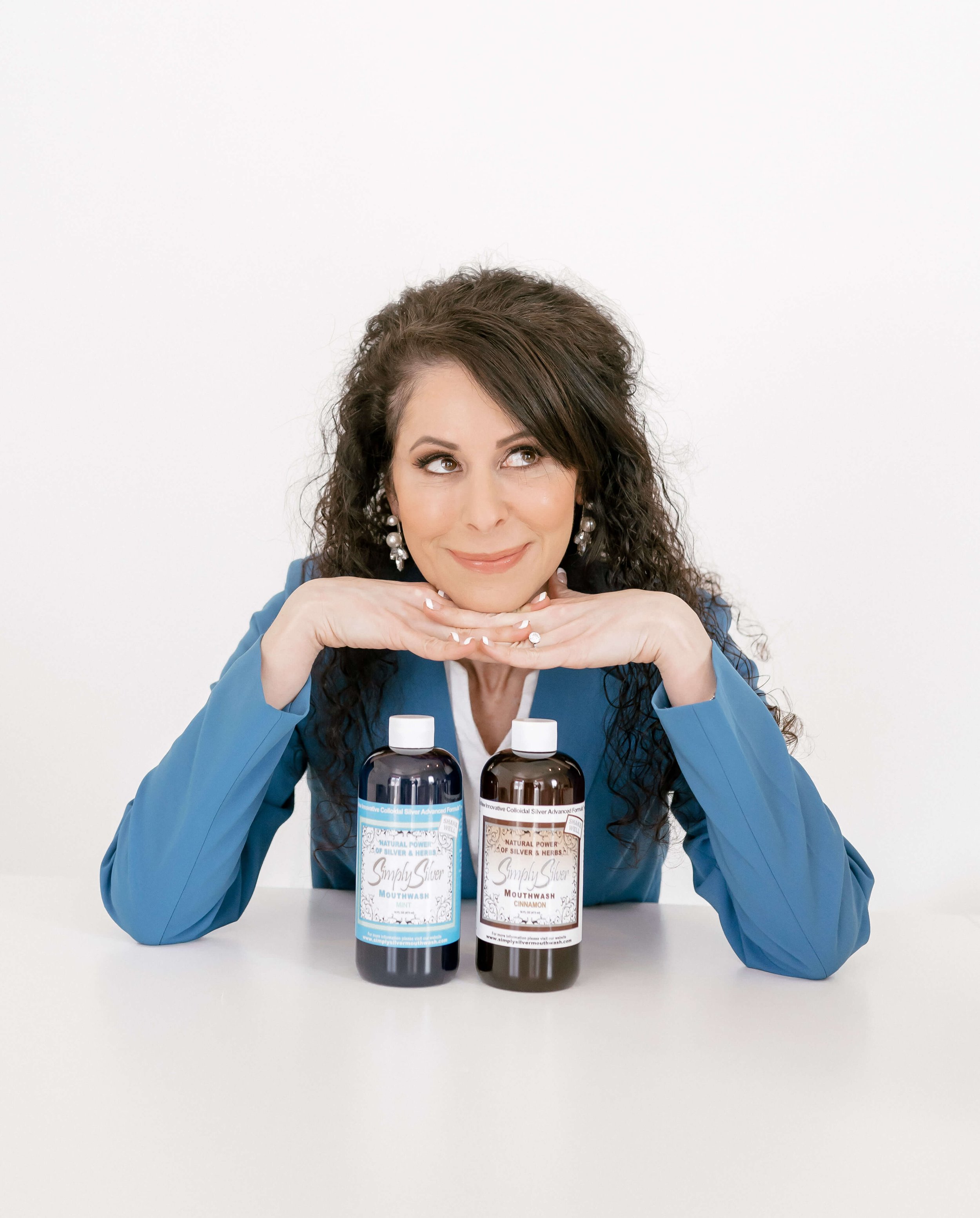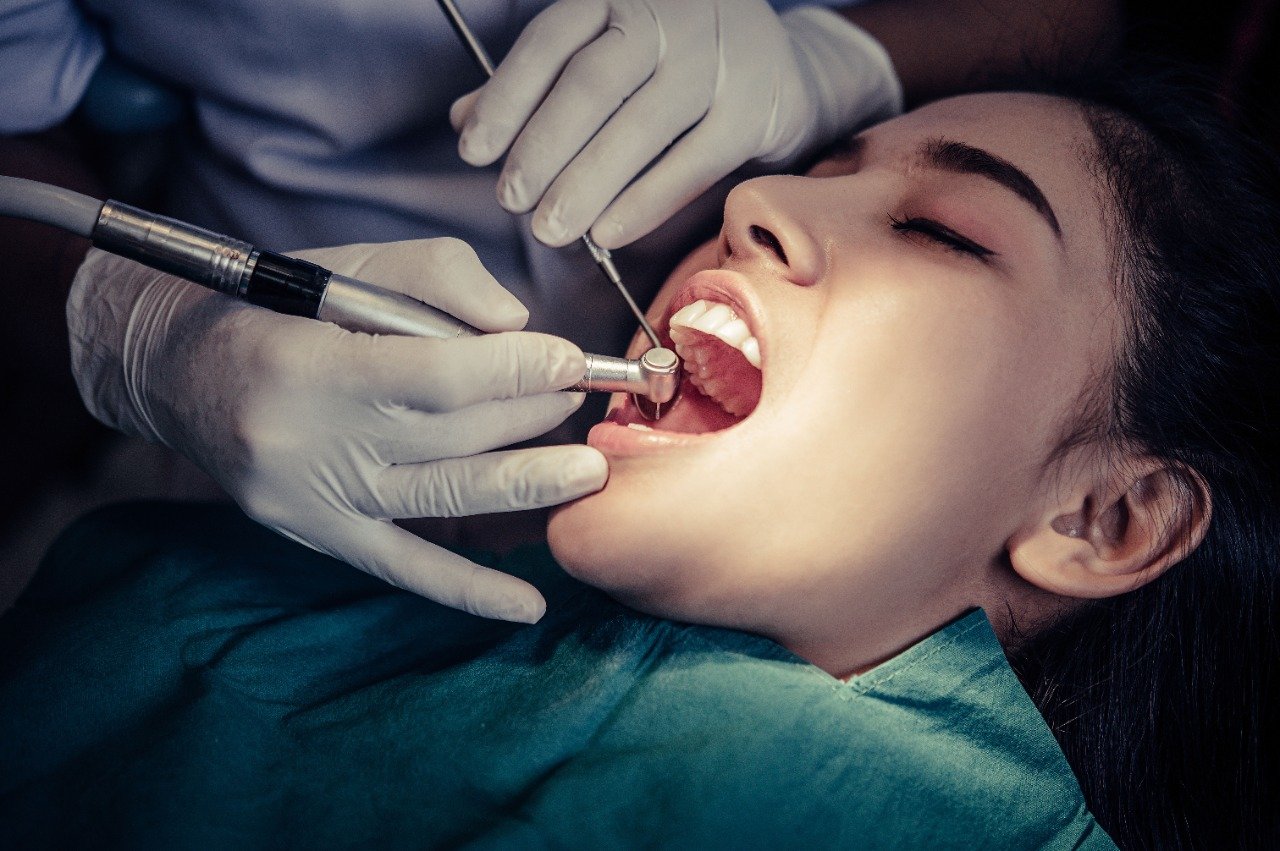Did you know that your mouth is your second “gut?” That’s right, your mouth has a microbiome just like your gut so it’s important you keep your mouth bacteria in good balance.
Whether you’re looking to keep the bad bacteria at bay or just keep your breath fresh, using a mouthwash is often suggested by dentists. But most times, the mouthwash we use can cause a burning sensation. You might be asking questions like - Is it okay to feel the burn? Is there a limit to how much it should burn? When should we seek expert help if the burn persists for an extended period of time?
Let’s find out.

Alcohol Free Therapeutic Mouthwash
Types of Mouthwash
There are two types of Mouthwashes: Cosmetic and Therapeutic.
First let me clarify something, ALL non-prescription commercial oral care products fall into the “cosmetic” category so that’s why there are a LOT of questionable ingredients allowed in them. Cosmetic Mouthwashes may give you a refreshing feeling which keeps the bad breath at bay for a short period of time. However, the chemicals only temporarily destroy the bacteria responsible for bad breath. The side effect can be a disruption of the good bacteria (your oral microbiome) and even dry out your mouth to the point where the bad bugs flourish. This will not solve many dental issues.
Therapeutic mouthwashes, on the other hand, are prepared with formulations that can fight various types of diseases and are often prescribed by doctors depending on the dental issue. Both types can create a burning sensation if they contain any type of alcohol. Remember that your mouth is the most vascular part of your whole body, so whatever you stick in your mouth does get into your bloodstream.
Why Does Mouthwash Burn
Mouthwashes often provide a tingling, minty, and refreshing sensation. These symptoms can be painful for some, especially those who have sensitive gums or other dental disorders that need to be addressed. Even if you don't have any dental problems, the solution may cause a burning sensation in your mouth.
Brands often say that this burning feeling means the mouthwash is working on bacteria that cause bad breath and other microorganisms in your mouth, but that is not necessarily the case. This can also be an indication of a greater issue that requires immediate attention from a dental professional. So please don't wait until it’s too late. Preventative dentistry isn’t expensive, neglect is. There are many diseases that first show signs in the mouth like Scurvy and several types of cancer, so early detection can make all the difference
What Ingredients Cause Burn
Menthol, is a common component in mouthwash because of its antimicrobial properties and is responsible for the cold-tingly feeling. It fights microorganisms that cause bad breath but can also be responsible for the burning sensation some people experience. Keep in mind not all menthol is created equal. If it’s derived from the plant, Mentha arvensis, then it’s natural menthol crystals. When checking the ingredients, see if it states just “Menthol” or “Mentha arvensis.” The latter is what you’re looking for.
Alcohol, is often the main ingredient used to prepare mouthwash due to its antiseptic properties, but it also creates the burning effect. Some mouthwashes may contain up to 27% alcohol. This takes a toll on your taste buds and is EXTREMELY drying to your oral mucosa. The burning may increase and intensify due to frequently rinsing the mouth. By the way, the reason alcohol was used centuries ago for mouthwash was to treat gonorrhea. Thank God times have changed!
Chlorhexidine is another ingredient used in mouthwash for the treatment of bleeding gums prevalent in periodontal disease, and can cause a rare but serious allergic reaction in certain people. The side effect of Chlorhexidine is the altering of taste buds and staining of teeth.
Disadvantages of Alcohol in Mouthwash
Delicate mucus membranes in the mouth are destroyed due to high levels of alcohol content. Ingesting alcohol based mouthwashes can also be dangerous as stated in Listerine’s Material Safety Data Sheet, section 11. “Chronic ingestion of ethanol has been reported to be associated with an increased incidence of cancer, liver cirrhosis, and congenital malformations” and also “Alcohol is listed as a carcinogen by IARC.”
The reason why it can cause oral cancer is because the alcohol seriously affects the pH of your mouth and can harm your oral microbiome. What you want to be mindful of is creating a symbiotic state for your mouth where both the good and bad bacteria are balanced. There are many other safe and natural ingredients available that mouthwashes can be prepared from that have antiseptic properties without the burn. So check if you absolutely need an alcohol-based mouthwash, if not (I’m leaning toward a hard no here), then it is highly probable that experts will suggest you use products that are made of natural ingredients.
Disadvantages of Using Fluoride in Mouthwash
As there is already fluoride present in our soil, food, medicine and water, it is important to use products that are low in fluoride content, or better yet, avoid it completely. Fluoride can even be in bottle water and not listed as an ingredient as long as it doesn’t exceed a certain amount. Excessive exposure of fluoride can cause dental fluorosis, skeletal fluorosis, skin, thyroid & neurological problems, bone cancer, reduced IQ and even death. Just read the poison warning on the back of your toothpaste box. It is labeled as a drug because that’s how it’s classified.
There are many other controversies surrounding the use of fluoride. Long story short, more research is ongoing on the use and effects of fluoride on the human body, mind and spirit. I always encourage people to be an informed consumer and fluoride is one ingredient everyone should research on their own. Don’t take anyone’s word for it. Make an informed decision.
Solution

Simply Silver Mouthwash is completely organic and alcohol free…
Burn Free Mouthwash
Off-the-shelf mouthwashes contain many harmful & toxic elements that otherwise cause burning sensations in our mouth. This can be indicative of bigger oral issues.
These days, however, you can come across many alternative natural mouthwashes that don’t contain harmful ingredients like Ethanol, fluoride or SLS. Instead, these mouthwashes contain natural healthier alternatives like Colloidal silver, aloe or essential oils. Please keep in mind that essential oils can be very strong and some people may be sensitive to them as well.
Simply Silver Mouthwash is an alternative brand that promotes clean and green ingredients that are not only safe, but effective as well. Our alcohol-free mouthwashes produce a gentler effect on your tongue, mouth, and gums. We use organic natural components as our ingredients. If you’re looking for a “spicy” mouthwash, you will like the cinnamon flavor because it contains cinnamon bark oil. If you have sensitive tissue, I would not recommend this flavor as cinnamon is considered a “hot” oil. If you feel either the mint or cinnamon is too strong, you can dilute with water and still get the benefits from the silver. If you have any questions as to what type of mouthwash you would benefit from, please feel free to book a consultation with me.
Dental Issues & Mouthwash
If the mouthwash you're using is causing you pain or burning, use common sense and stop using it. Using a mouthwash that you're hypersensitive to might cause tissue breakdown in your mouth, which can lead to apthous ulcers, aka canker sores. Commercial mouthwash should not be used by children under the age of six. Children between the ages of 6 and 12 can use a special mouthwash designed for them, but they should still be supervised.
Encouraging Habits

Maintaining and improving your oral health requires consistent care and diligence. While mouthwash can help you boost your oral health, there are other important practices which you can’t ignore. Here’s a few :
-
Brush and Floss the teeth you want to keep
-
See your dentist/hygienist at least twice yearly
-
Avoid excessive sugary, starchy, or acidic foods or drinks
-
Avoid smoking & alcohol abuse
-
Stay hydrated and watch for symptoms of dry mouth
Endnote
By design, your gums, mouth and teeth are unique in nature. Tooth decay is the most common disease prevalent in America today and over 85% of people have some form of gum disease. Medicine and science are always evolving and thankfully are working more hand in hand to treat the body as a whole, not simply compartments. Although we have a lot of choices for oral care products, we should not treat these chemical-based formulations so lightly. Be mindful of what you’re putting into your body as it’s essential that you use the right thing for the best preventive measure. Be informed, ditch the toxins, and use the right thing.
